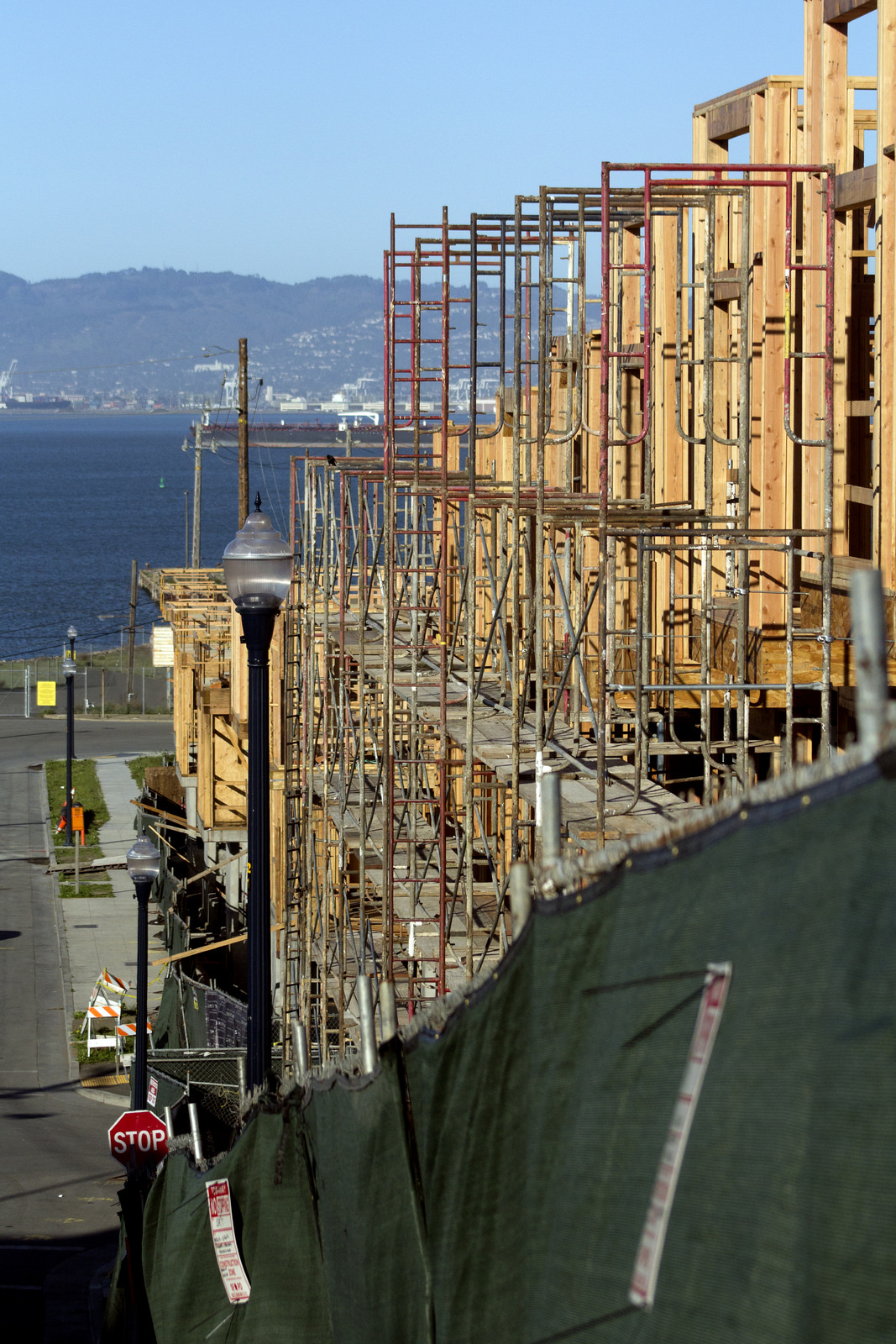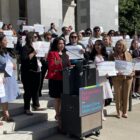Last summer, the prospect of a bond to help fund affordable housing projects in San Francisco seemed remote.
What a difference a year makes.
Early Wednesday morning the Board of Supervisors reached an agreement on a proposal to borrow $310 million to finance affordable housing construction and acquisition. If approved by voters in November, it would be the largest such bond in the city’s history.
Members of the board’s budget and finance committee were up late Tuesday night working out the deal as part of their negotiations on the city’s two-year budget. On Wednesday the committee unanimously approved the budget, which will go to the full Board of Supervisors for a vote next month.
The San Francisco Chronicle reported that the proposed bond would include $80 million for public housing, $150 million for low-income housing and $80 million for middle-income housing. The new budget also allows the city to borrow more money against the Housing Trust Fund, providing another $25 million for affordable housing.
As part of a report on creative solutions to the housing crisis last summer, the Public Press reported that developers were waiting to build more than 800 affordable housing units on city land, but lacked the funding to do so.
Advocates of issuing a new bond said at the time that polling suggested the idea was popular among voters. But the push for a housing fund was overshadowed by the mayor’s $500 million transportation bond initiative, which voters passed last November.
This year, the political winds have shifted. Funding for housing now enjoys widespread support, although until recently the Board of Supervisors was divided about how large a bond should be.
In May, Mayor Ed Lee proposed a $250 million bond initiative for this November’s ballot. On June 8 he upped that number to $300 million, adding more money for low- and middle-income housing in the Mission.
Meanwhile, a coalition led by Supervisor John Avalos was pushing for an even larger bond: $500 million. But Avalos and supervisors David Campos, Jane Kim, Eric Mar and Norman Yee released a joint statement Wednesday saying their coalition would support both the budget and the $310 million bond.
It is not a new idea. San Francisco voters have done it before, but nowhere near the amount city leaders now think is required to hold the line on skyrocketing rents and a worrisome rate of legal and illegal evictions.
Voters passed a $100 million affordable housing bond in 1996. Similar bonds also appeared on the 2002 and 2004 ballots, but neither of those initiatives received the two-thirds supermajority required to pass. The 2004 initiative came close, receiving 64 percent of the vote.
Both measures would have raised property taxes. The Chronicle reported that until this month, Lee had argued that $250 million was the highest amount of money the city could borrow on the bond market without paying for it with a property tax increase. Now both Lee and board members say that a $310 million bond would keep taxes from going up.
The mayor said in a public statement that the bond was part of a campaign of more than $1.1 billion to invest in affordable housing over five years. The plan, introduced early last year, calls for the building and rehabilitation of more than 10,700 units for low- and middle-income families. Close to 6,000 of these units would be new construction, the Public Press previously reported. The Association of Bay Area Governments calculated last year that San Francisco would need to build more than 16,000 new affordable housing units before 2022 to keep up with expected demand.
For more on creative solutions to San Francisco’s affordable housing crisis, see our summer 2014 reporting project.










